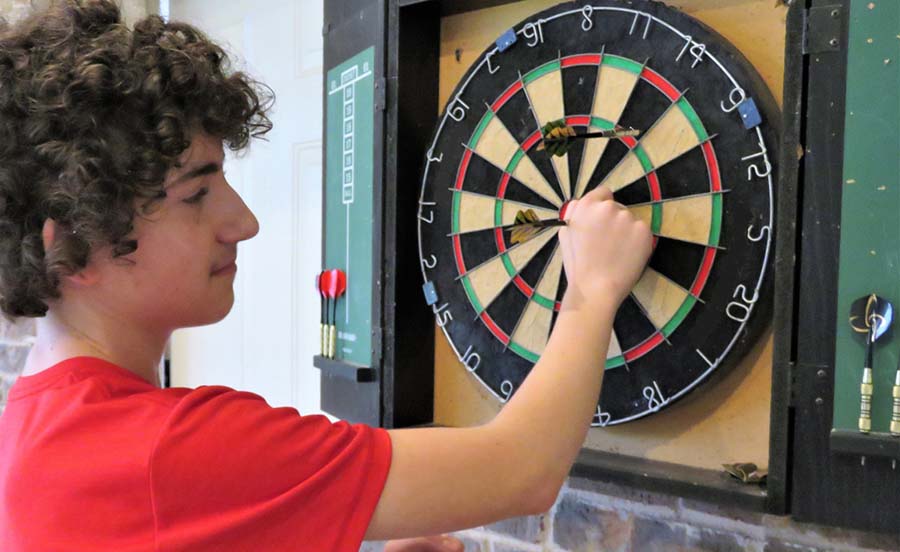
by TutorUp | Jul 13, 2022 | Parents and Home
The 2022/23 School Year Will Be Starting Soon
Once July 4th celebrations begin fading from our memories, the steady countdown to “back to school” begins. Sure, there’s still summer left to enjoy, but when stores begin stocking school supplies, and emails begin arriving encouraging school registration, it’s time to get prepared.
When Does School Start in Your District?
Depending on where you live, some kids may go back to school as early as the first week of August while others don’t start until the week after Labor Day in September. Chances are that you’re well aware of exactly when school starts in your local district, but if you’re not sure, a quick online search for your school district’s website will give you all the info you need about start dates, registration, school supply lists, and more.
If you’re not sure which school district you’re in, this handy tool or also this search tool will tell you. Just enter your address and you can see the name of your school district and the elementary, middle, and high schools in it. You can even search for charter and private schools. Once you identify your school district, it’s easy to find the website and phone number to get the details.
Getting in the Back to School Groove
You’ll want to squeeze every moment of summer fun into the remaining days of summer vacation, but it’s also a good idea to gently steer thoughts in the direction of starting back to school. Many students have done some type of summer school, summer learning programs, summer tutoring, or other learning-related activities over the break, and the transition back to full-time school might be less of a chore for them. But whether your kids have done any of that or not, encouraging a positive attitude about returning to school is important.
If your child has struggled in school, you may need to help them overcome negative feelings about school and about their own achievements and obstacles. Even kids who have few issues academically might have performance anxiety or socialization challenges that make them feel negatively about school. Being sensitive to these real hurdles, taking them seriously, and talking about them can help your child overcome the negativity.
As with many areas in life, if you’re a positive role model for your child, and show that you value education and you are supportive, it will help foster confidence and a positive attitude towards school. And while all of this is important, so is maintaining a balance between school and other activities. Be careful not to overwhelm your child with concerns about performance in school.
One way to help a child who struggles with school is to provide them with opportunities to excel at something. Sometimes this means giving them activities or tasks that are below their actual grade level, just to help them experience the joy in getting things right and mastering something.
Help Overcome the Summer Slide
It’s long been an established fact that students lose ground academically over the summer break, and starting back to school in the fall involves a lot of remedial work. This learning loss is most remarkable in math and English. Over the past couple of school years, families have also had to contend with Covid-related learning loss due to major disruptions in normal school attendance and functionality. This double-impact on learning has resulted in students who are further behind in these core subjects than ever before.
Providing kids with some fun activities that don’t feel like work or school yet still provide lots of learning opportunities can help mitigate learning loss. For help with math-related fun things to do, check out these resources. And for ways to incorporate fun reading activities that help kids keep up and improve, you’ll find great reading recommendations here.
Whenever the new 2022/23 school year starts for your student, it’s not too early to get ready for it now.

by TutorUp | Jul 5, 2022 | Parent and Tutor Resources
Fun ways to keep up with math over the summer
Even in “normal” years, kids of all ages lose ground over the summer, especially in math and reading. With the disruptions in school we’ve all experienced the past couple of years, this year the “summer slide” is even more pronounced than usual. But how is a parent supposed to get kids doing anything resembling homework over summer vacation? Worksheets just aren’t going to cut it.
Searching online for “fun math activities” highlights a lot of different resources for students of all ages. Here are a few of the best:
Bedtime Math
This site has daily activities that you can do with your kids that incorporate math and numbers in creative ways, engaging kids of various ages, like this one on the invention of the calculator. Check out their great daily math challenges.
Mathseeds
This site combines free and paid activities for kids that are presented as classroom aids for the teacher, but are easily adapted to at-home activities. Ideas include Math Bingo, making a paper plate clock, guessing the weight of different objects, hopscotch math, pizza fractions, and more.
ID Tech
For the older kids, ID Tech has fun math activities geared to middle and high school students. Did you know that Minecraft has an incredible math educator’s guide? Find out ways to apply math to Minecraft activities. There are ways to incorporate Fantasy Football, Math Jeopardy, subtraction dice and more.
NASA’s Math Series
Want some fun and challenging ways to engage your STEM students? NASA offers activities for algebra, geometry, and pre-calculus.
Beyond Sudoku
Of course you’re familiar with the number challenges in playing Sudoku, but have you heard of KenKen? These puzzles can be addictive!
Math Games and Activities for Kids on the Move
Not everyone learns well by sitting at a desk or staring at a computer screen. Kids need to be active and move and they can still be learning while working off some energy. We Are Teachers has a variety of activities you can offer to your squirmy kids who learn better when in motion.
Summer Math Tutoring
If your student could use some one-on-one math support from a certified, classroom-experienced teacher, we have math tutors for all grade levels. Private online sessions can be arranged to suit your summer schedule, and can help guarantee that your student is ready when school starts back up this fall.

by TutorUp | Jun 24, 2022 | Parents and Home
reposted with the author’s permission
Teaching has become one of the most draining jobs in America. So we asked Axios Finish Line readers who are teachers how we can help them.
Why it matters: Teachers’ stress and burnout is on the rise, while wages remain stagnant. All of us can step up to aid those who educate the next generation of leaders.
Here’s what we learned from educators:
Gifts and acts of service make a difference.
- “Pool resources and get your teacher a gift card to a local pool or yoga studio. Teachers are overworked and underpaid, and they’ve probably spent most of their discretionary income on their classroom anyway.” —Cari C., a teacher in San Francisco
- “I think people can help teachers by donating cleaning supplies to their child’s teachers. … Kids like having a job at school. The students gain a sense of pride and are rewarded by being told, ‘Job well done!'” —Ashley N., a teacher in Orlando
- “What teachers need is more and regular volunteers in the classrooms.” —Sheila C., a teacher in Durant, Mississippi
- “Coffee, coffee, coffee. Best gift ever. We cannot leave the building and have 20 minutes for lunch at best.” —Beth T., a teacher in Northern Virginia
If you’re a parent, be kind — and engage.
- “Parents should always give the teacher the benefit of the doubt, rather than right away racing to the child’s side. When the child performs well, it reflects on their teacher, so no teacher wants anything else for the child.” —Keith S., a fifth-grade teacher in Old Greenwich, Connecticut
- “Please think before sending a request or complaint. The number of emails that teachers receive every day is breaking their backs.” —Jeananne F., a retired principal from Fort Myers, Florida
- “Read to your child if they are young. If they are older, take them to the library with you and check out books. Talk about what you have read. Kids who see reading is important to the adults in their lives are far more likely to be engaged in school.” —Patty M., a high school science teacher in Hammond, Indiana
“Thank you” goes a long way.
- “Just saying thanks is unusual but provides such a mental energy boost for us when we are exhausted down to our souls!” —Robin G., a high school English teacher in Springdale, Arkansas
- Copy administrators on your “thank you” emails to teachers, says Joan K., a retired Connecticut teacher.
The bottom line: “Teachers perform an indispensable public service and work extremely hard doing it. But our society acts as if teaching is unskilled labor that anyone can do and chooses to compensate that labor accordingly,” says Sabrina U., a former K-12 teacher from Decatur, Georgia.
- Appreciate and support the teachers in your life.

by TutorUp | Jun 7, 2022 | Parents and Home
How to encourage your kids to read this summer
It’s summer and the last thing your kids want is an assignment. You know they should do some reading over the break in order to help mitigate the “summer slide” that happens to most kids. But if you make reading a chore, you risk turning your kids off.
Schools have summer reading programs. Libraries have summer reading programs. Parent groups have recommendations and lists of books that appeal to parents. And there are goals and rewards and milestones. And all of this feels like work.
Ditch the program
One of the best ways to encourage your kids to read is for you to be a reader. Seriously. They learn by example. And younger children usually love being read to. But just seeing that reading is important to you helps make it a natural activity.
If you have more than one child, having them read to each other can also be fun, or have an older child read aloud to younger kids who can’t yet read themselves.
Don’t force or cajole or bribe your kids to read. Just make reading materials of all types readily available to them. This includes:
- magazines
- newspapers
- graphic novels
- audio books
- blog posts
- travel brochures
- how-to-books
- cookbooks
- recipes
- catalogs
- word puzzles
- encyclopedias
- poetry
- fiction
- fantasy
- hobby books (like coin collecting, gardening, insects, music, art, vintage record albums…)
Resist the temptation to consult an “approved” reading list this summer and let your child’s own interests and hobbies guide them (and you) to reading about what they’re interested in, regardless of the medium. Your local librarian will be super helpful in directing you to reading materials on every topic.
Reading and writing are connected
Encouraging writing helps boost your child’s reading skills. You can help your child make a journal, or buy a ready-made one that they pick out, if they seem interested. Have them make a list of things they see or do over the summer so they have a ready made essay for back-to-school. This could easily turn into a scrapbook project. Help them pick a pen pal to write letters to. Have them write down recipes they like, creating their own collection or “cookbook”. Any type of writing activity is valuable and will improve their reading ability.
If your child has reading difficulties
Children who struggle to read are not going to enjoy reading. For some kids, making lower level, easier reading materials available can help. But if you suspect that your child is having a more serious problem with reading, summer is a good time to look into it. If the problem is something physical or cognitive, the earlier you get it diagnosed, the better. If it’s just that your child may be slower to catch on and develop reading skills, taking the pressure off and making it as fun and stress-free as possible will help.
Bottom line: remove the “work” aspect from summer reading and make a variety of materials available to your kids. Encourage reading without pressure and have a great summer!

by TutorUp | Jun 3, 2022 | Online Tutoring
The 2022 Summer School Picture
Millions of students enroll in summer school each year for a variety of reasons. Some students retake courses needed for graduation, some take courses for academic acceleration and enrichment, and some take career prep or college prep courses. In addition to K-12 programs, high school and middle school students can take advantage of summer programs offered by more than 97% of top universities.
In 2019, there were about 3.3 million students enrolled in summer school in the U.S., and in 2020, the latest year figures were available, that number increased to 3.4 million. According to a report on summer school by ThinkImpact, continued attendance in summer school could result in up to 25% improvement in mathematics, and up to 23% improvement in language capabilities. And 2022 should see growth as well “As there is an increased focus and significance placed on education, summer school has enjoyed a resurgence.”
The Effect of Summer School
As ThinkImpact reports, “Research has shown that students at every stage can benefit from summer school” and enrolling students in a grade level lower than the grade they just completed seems to have a marked positive impact.
The positive impact of summer school persists, even after the following school year. Students are generally showing an advantage of one grade level in post-tests over their peers, and even “one year later, there was a 13% benefit for students” in the subject they took in summer school.
Summer school during the pandemic, including online summer school, helped prevent loss of 50% of math gains and 30% of reading gains.
Blending Vacation with Learning
For most students, summer means fun and freedom and no more studying or homework. Parents need to keep that in mind, and weigh the benefits of summer learning with the benefits of having time off. Since most summer school programs are short duration, and typically don’t require daily attendance or long hours, it’s relatively easy to combine summer fun with summer learning.
The “summer slide” is a known phenomenon that impacts students primarily in math and reading. Typically, students lose an average of two months of reading skills and 2.6 months of math skills over the summer. Once they return to school in the fall, it can take weeks if not months to relearn and get caught back up to where they were at the beginning of summer.
This is one reason many parents choose to incorporate some kind of summer learning for their kids.
Summer Tutoring Online
If you’re planning to enroll your student in a summer learning program, you may find that a little one-on-one personalized tutoring support will help boost that learning. Or if your student just needs a couple of hours a week of tutoring without the need to enroll in a formal summer program, TutorUp has solutions for your needs. All of our tutors are certified, classroom-experienced teachers and as such, they have more availability over the summer than during the school year. We can match your student with the perfect tutor to help them sail through a summer school program, or just help them avoid the annual summer slump. Click here to let us know what you’re looking for.






